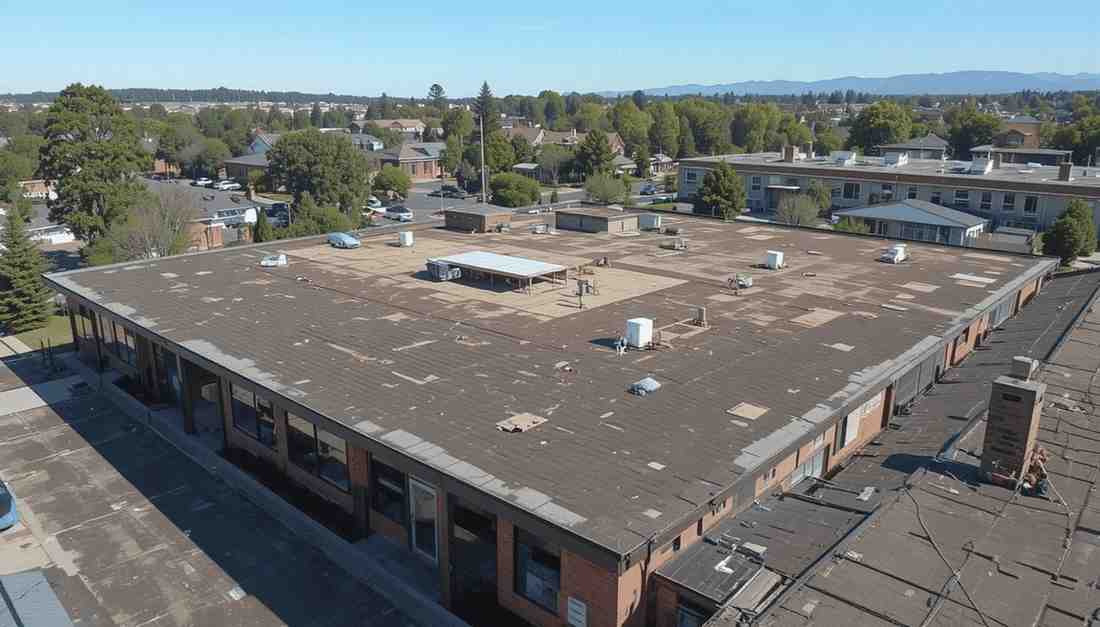


Learn how to choose a reliable commercial roofing contractor. contract.
Finding a reliable commercial roofing contractor isn’t something you want to rush. Your building’s roof protects everything underneath it your equipment, inventory, employees, and daily operations. A bad choice can lead to costly repairs, business interruptions, and headaches that last for years.
Whether you’re managing an office building, warehouse, or retail space, the contractor you choose makes all the difference. Here’s what you need to know to make a smart hiring decision.
Start with Proper Licensing and Insurance
Before you talk numbers or timelines, verify credentials. A legitimate commercial roofing contractor should carry general liability insurance and workers’ compensation coverage. Ask for proof and don’t just take their word for it. Call the insurance company directly to confirm the policy is active.
Licensing requirements vary by state, so check what’s needed in your area. Some states require specific roofing licenses, while others have general contractor requirements. This paperwork might seem tedious, but it protects you if something goes wrong during the project.
A Roofing Insurance Specialist can help navigate claims if your roof needs repair due to storm damage or other covered events. Having a contractor who understands insurance processes can save you thousands and speed up approval times.
Look for Commercial Experience
Residential and commercial roofing are completely different worlds. A contractor who excels at shingled homes might struggle with flat commercial roofs, membrane systems, or large-scale projects. Ask about their specific commercial experience how many projects similar to yours have they completed?
Request references from other business owners. A reputable contractor won’t hesitate to connect you with past clients. Call those references and ask direct questions: Did they finish on time? Were there hidden costs? How did they handle problems that came up?
Companies like Right Now Roofing & Solar specialize in commercial projects and understand the unique challenges businesses face, from minimizing disruption to meeting strict building codes.
Understand the Different Roofing Systems
Commercial roofs typically use TPO, EPDM, PVC, modified bitumen, or metal systems. Each has pros and cons depending on your climate, building structure, and budget. A knowledgeable contractor should explain your options without pushing the most expensive choice.
Ask why they recommend a particular system for your building. The right contractor educates you rather than just selling you something. They should consider factors like your roof’s slope, local weather patterns, energy efficiency goals, and how long you plan to own the building.
Some contractors also handle Commercial Roofing Services alongside other building envelope work, which can be convenient if you need multiple repairs or upgrades.
Get Multiple Detailed Estimates
Never settle for the first quote. Get at least three written estimates that break down materials, labor, timeline, and warranty information. Watch out for bids that seem too good to be true they usually are.
Compare what’s included in each estimate. Does it cover tear-off and disposal of old materials? What about flashing, drainage, and ventilation? The cheapest bid often leaves out crucial elements that become “extras” later.
Pay attention to warranty terms too. Material warranties come from manufacturers, but the workmanship warranty comes from your contractor. A company confident in their work typically offers longer workmanship guarantees.
Consider Energy Efficiency Options
Many business owners now look at roofing as an energy investment, not just a maintenance expense. Cool roofing systems reflect more sunlight and absorb less heat, which can significantly reduce cooling costs.
If you’re thinking bigger picture, ask if the contractor handles Residential Solar Systems or commercial solar installations. Right Now Roofing & Solar, for example, can evaluate whether your roof structure can support solar panels and integrate both projects for maximum efficiency and savings.
Some contractors can also assess whether your roof qualifies for energy efficiency tax credits or utility rebates, which can offset installation costs.
Communication and Professionalism Matter
How a contractor communicates during the sales process tells you a lot about how they’ll handle your project. Do they return calls promptly? Answer questions clearly? Provide written documentation of everything discussed?
Red flags include pressure tactics, requests for large upfront payments, or reluctance to put agreements in writing. Trust your instincts. If something feels off, keep looking.
A professional contractor maintains clear communication throughout the project, updates you on progress, and addresses concerns immediately rather than avoiding difficult conversations.
Check Their Safety Record
Commercial roofing is dangerous work. Ask about the contractor’s safety training programs and OSHA compliance record. A company with a good safety record protects both their workers and your liability exposure.
Accidents on your property can lead to legal and financial complications even if the contractor has insurance. Companies that prioritize safety demonstrate overall professionalism and attention to detail that usually carries over into the quality of their work.
Plan for Ongoing Maintenance
Your relationship with a roofing contractor shouldn’t end when the project finishes. Commercial roofs need regular inspections and maintenance to maximize their lifespan. Some contractors offer maintenance plans that include periodic inspections, minor repairs, and priority service.
Ask about their process for addressing future issues. Will they come out for inspections? What’s their response time for emergency repairs? A contractor invested in long-term relationships often provides better service than one focused only on new installations.
Choosing the right commercial roofing contractor takes time and research, but it pays off with a roof that performs well for decades. Don’t rush the decision. Your building deserves protection from someone who treats your investment like their own.
5 FAQs Based on People Also Ask
